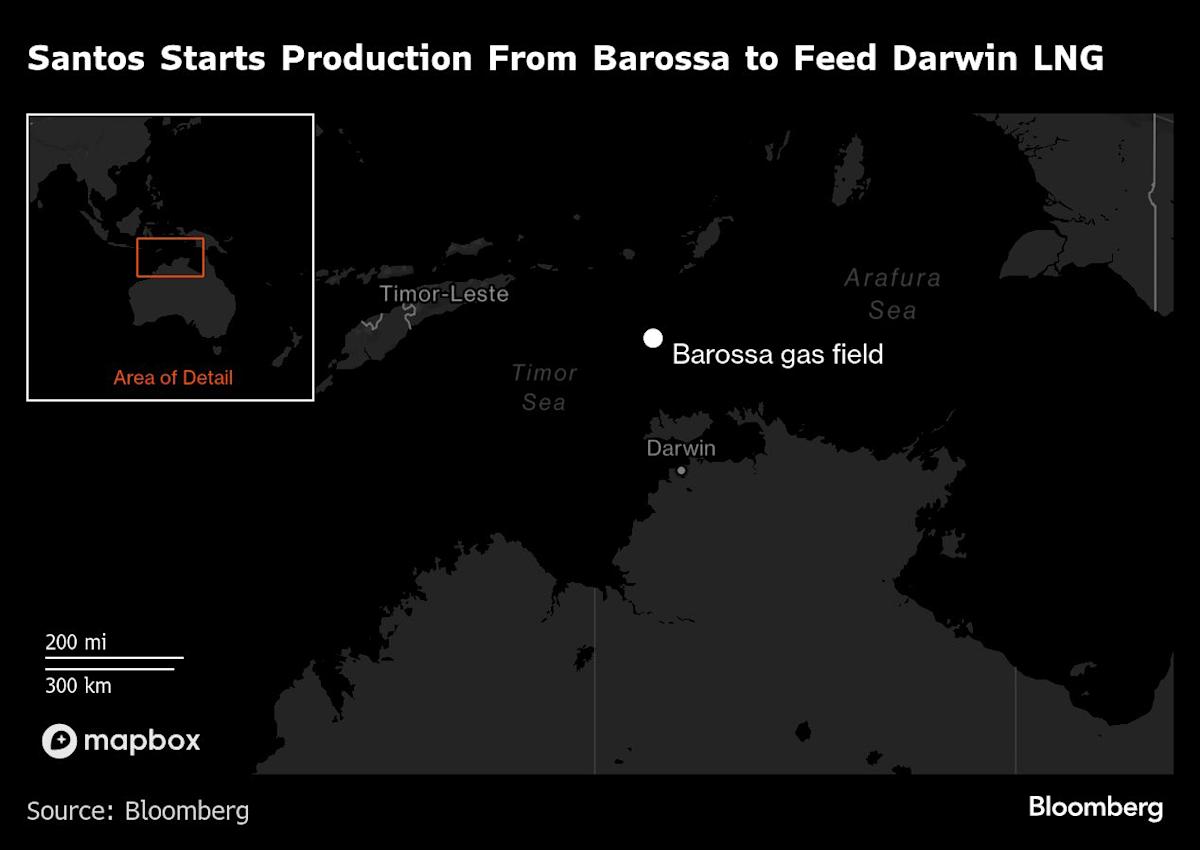Santos Starts Barossa Gas Project, Among Australia’s Dirtiest
(Bloomberg) — Santos Ltd. started production from one of Australia’s highest-emitting natural gas projects, which will help bolster shipments to buyers in Asia but also threaten climate goals as the country tries to move toward net zero emissions.
The multibillion-dollar Barossa field off northern Australia delivered its first natural gas into the BW Opal floating production, storage and offloading vessel, Santos said in a statement to the Australian Stock Exchange on Monday. The field will allow the company to restart its Darwin liquefied natural gas export plant, which ships fuel to mainly Japanese buyers.
Invest in Gold
Most Read from Bloomberg
Barossa has faced criticism because of its high carbon dioxide content — making it one of the dirtiest gas projects globally, and a flashpoint in the nation’s debate about its role as a major fossil fuel exporter even as it is one of the hardest hit by climate change. It comes after Australia pledged to cut greenhouse gas emissions within a range of 62% to 70% by 2035 last week.
Environmental groups and Tiwi Islands traditional owners waged a protracted legal campaign to halt the project, forcing Santos to reroute the pipeline and redo consultations.
All six wells drilled in the Barossa gas field have intersected excellent reservoir quality, and each well is expected to deliver an average of 300 million standard cubic feet per day, Santos said.
Barossa is one of Santos’s cornerstone assets. The project, which includes a 262-kilometer (163-mile) undersea pipeline, will deliver as much as 3.7 million tons of LNG a year — about 4% of Australia’s total export capacity. Santos operates and owns half of Barossa, with the rest held by South Korea’s SK Innovation E&S and Japan’s Jera Co.
“It puts us on track to deliver reliable energy to our customers and long-term value to our shareholders from Barossa LNG,” Santos Chief Executive Officer Kevin Gallagher said in the statement.
The project will enter Australia’s Safeguard Mechanism, which caps industrial emissions. Santos plans to rely on offsets and carbon capture to meet those limits and says the project will be net zero reservoir emissions from day one.
The start of production will be welcome news for Santos shareholders, after the stock lost 11% last week. That came after an Abu Dhabi National Oil Co.-led group dropped its $19 billion takeover offer for the company.


